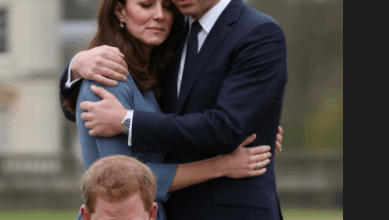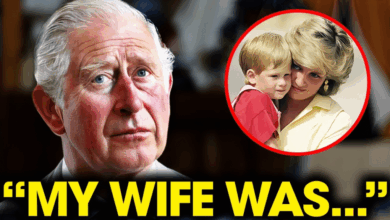Congratulations, Prince Edward! The hidden D.N.A test of Harry, left behind by Diana, has finally been revealed — confirming the 30-year-old rumor. The Palace released a shocking announcement: ‘Unbelievable, Harry is actually…’”
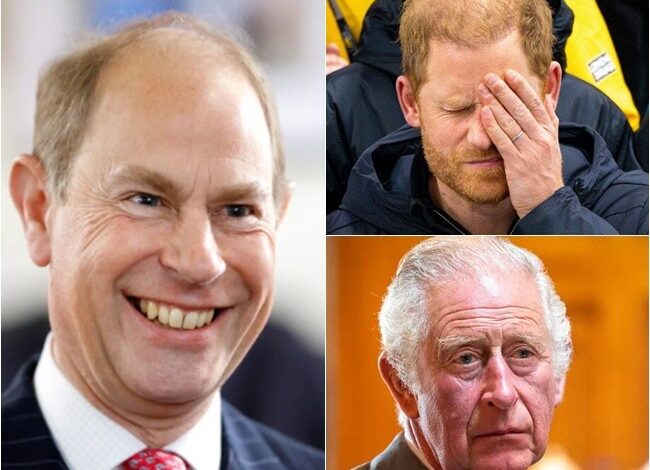
RF. Prince Edward Breaks Silence on Prince Harry: A Rare Glimpse Into Royal Tensions
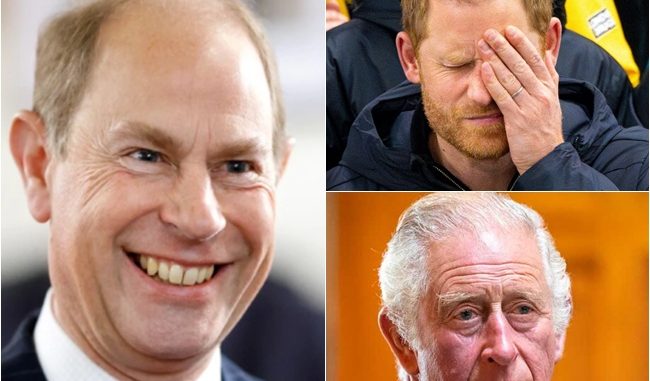
The British royal family often finds itself at the center of global attention, with every appearance, statement, and event closely followed. Among its members, Prince Edward, the Duke of Edinburgh, has generally maintained a lower public profile compared with his elder siblings. However, his consistent commitment to royal duties, charitable work, and support for the monarchy highlights the importance of his role in the modern royal family.
This article explores Prince Edward’s career, his contributions to the monarchy, his relationship with his family, and how his steady approach reflects the institution’s long-term priorities.
Prince Edward: Background and Early Life
Prince Edward Antony Richard Louis was born on March 10, 1964, as the youngest child of Queen Elizabeth II and Prince Philip, Duke of Edinburgh. Unlike his brothers, Charles and Andrew, Edward has been more reserved in public life, often described as thoughtful and measured in his approach.
He studied at Gordonstoun School in Scotland, the same school attended by his father and brothers, before completing his education at Jesus College, Cambridge, where he earned a degree in history. After university, Edward briefly pursued a career in theater and television production, reflecting his personal interests outside of royal duty.

Transition Into Royal Duties
By the 1990s, Prince Edward gradually shifted into a more prominent role within the royal family. He married Sophie Rhys-Jones in 1999, who became the Countess of Wessex (and later Duchess of Edinburgh). Together, they raised their two children, Lady Louise Windsor and James, Earl of Wessex, while maintaining a reputation for balancing public duty with family life.
Edward’s responsibilities increased following the passing of his father, Prince Philip, in 2021. In March 2023, King Charles III granted Edward the title of Duke of Edinburgh, in recognition of his decades of service and to honor Prince Philip’s legacy.
A Consistent Presence in Public Service
Prince Edward has long been active in charitable organizations, especially those connected to the Duke of Edinburgh’s Award program, which promotes youth development and leadership through outdoor challenges and community service. His work has taken him across the United Kingdom and abroad, where he has encouraged young people to participate in personal growth opportunities.
In addition to his involvement with the Award, Edward supports a wide range of charities, particularly in the areas of education, the arts, and sports. His dedication to these causes underscores his reputation as a steady and dependable royal.
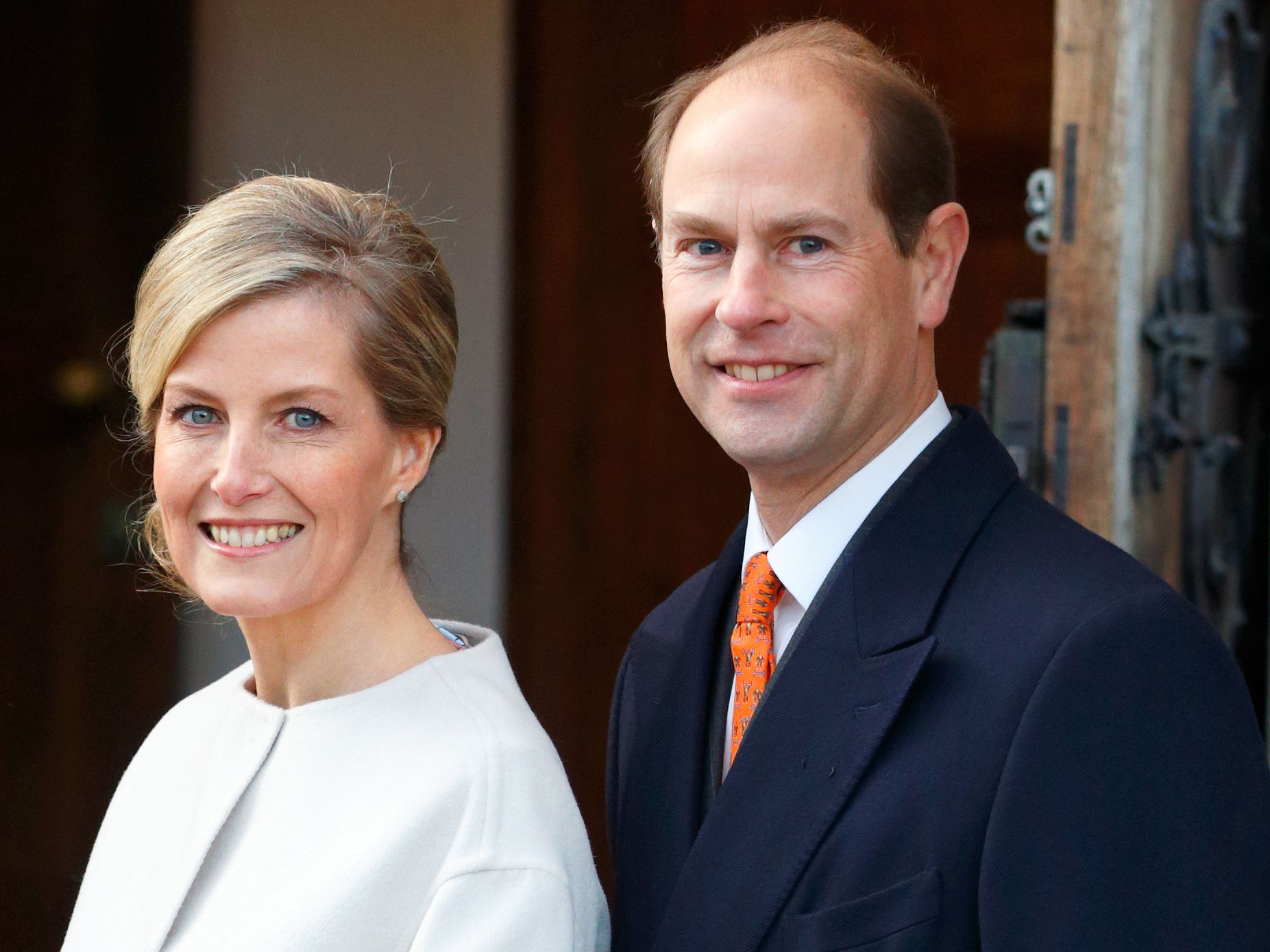
A Supportive Role Within the Monarchy
Unlike some of his siblings who have been more frequently in the media spotlight, Prince Edward has built his role around consistent support rather than controversy. He regularly accompanies King Charles III and other senior royals at state occasions, ceremonies, and commemorations.
His approach has been widely regarded as one that strengthens the monarchy’s sense of continuity. Edward’s quiet yet consistent presence provides stability at a time when the royal family continues to adapt to modern expectations.
The Importance of Family Unity
One of Prince Edward’s defining qualities is his ability to maintain strong family relationships without drawing unnecessary attention. During major royal milestones—such as Queen Elizabeth II’s Platinum Jubilee, her funeral in 2022, and the coronation of King Charles III in 2023—Edward and his family have been recognized for their calm presence and dignified participation.
His public demeanor reflects the monarchy’s tradition of discretion. By remaining focused on service rather than personal disputes, Edward reinforces the family’s collective message of duty and continuity.

Prince Edward and His Public Image
While media attention often focuses on more high-profile members of the royal family, Prince Edward’s contributions should not be underestimated. His leadership in continuing the Duke of Edinburgh’s Award, his advocacy for arts education, and his charitable work provide tangible examples of service.
Furthermore, his partnership with Sophie, Duchess of Edinburgh, has helped modernize the royal family’s image. Sophie, known for her charitable initiatives in healthcare and children’s welfare, complements Edward’s work, making them one of the most quietly effective royal couples.
The Future of His Role
As King Charles III takes on the responsibilities of monarch and Prince William prepares for his future role as king, Prince Edward’s steady presence remains vital. His role may not generate the same level of headlines as others, but his consistent service ensures that essential royal duties are fulfilled.
With the monarchy undergoing generational transition, Edward’s example demonstrates how quieter forms of leadership can strengthen public trust. His work symbolizes reliability and continuity, two qualities central to the institution’s future.
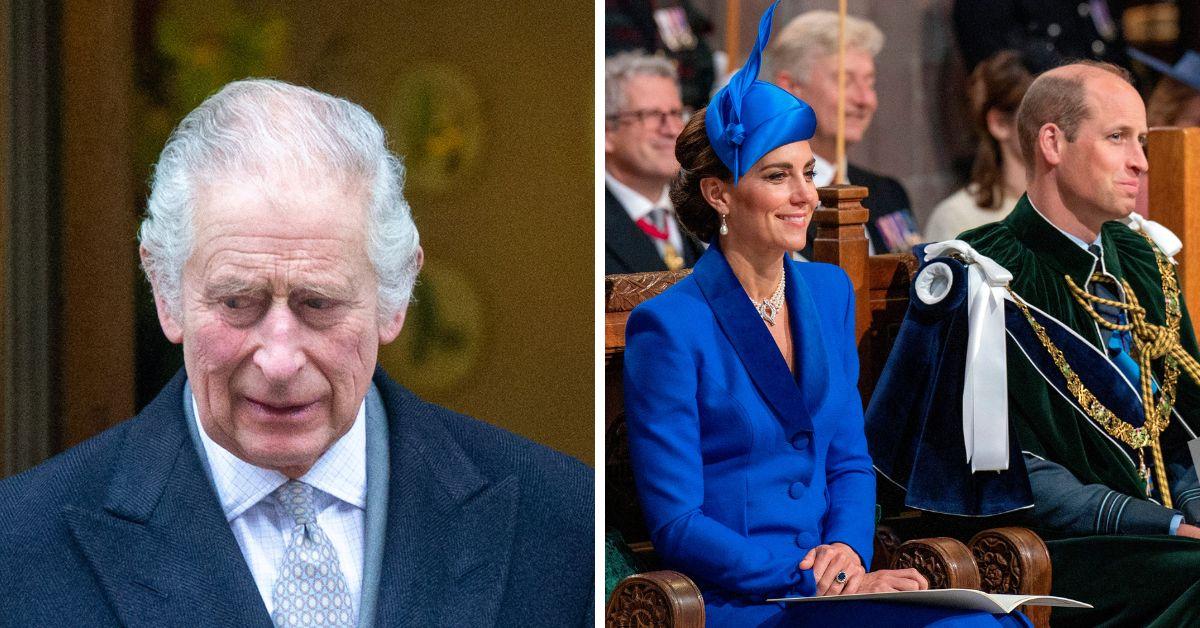
Conclusion
Prince Edward, Duke of Edinburgh, has carved out a unique space within the British royal family. By choosing consistency over controversy and service over self-promotion, he has become a respected figure whose work speaks louder than words.
While global attention often gravitates toward more public-facing royals, Edward’s decades of commitment to charitable initiatives, youth development, and royal responsibilities underline his significance. His approach—measured, thoughtful, and reliable—demonstrates the values that continue to sustain the monarchy into the future.
As the royal family navigates change and prepares for the next generation of leadership, Prince Edward’s role remains indispensable. His legacy will likely be defined not by dramatic headlines but by the quiet strength of a life dedicated to service, stability, and family unity.



